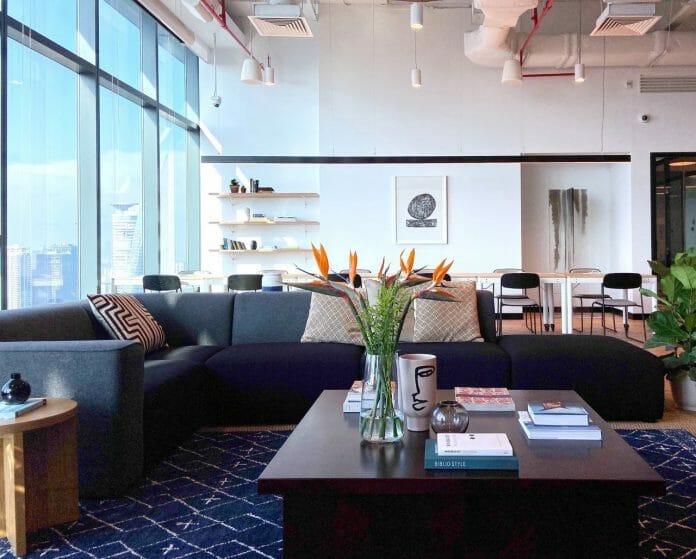Space-as-a-service platform, WeWork, has reported an increase in membership by close to 15 percent from March to July 2020. Significantly, WeWork Malaysia also tracked more than 30 percent growth in its enterprise members across sectors such as oil & gas, financial services, marketing and advertising, government and technology.
These enterprises include the likes of PETRONAS New Energy, Tenaga Nasional Berhad, StashAway, Panduit, Respond.io and Trapo just to name a few.
Across Southeast Asia, WeWork has seen more than 20 percent increase in enterprise members. This outlook is further supported by a recent report commissioned by WeWork and published by IDC. The report, Future of Work: Coworking for Enterprises (A Southeast Asian Perspective), examined how global enterprises around the Southeast Asian region perceive workspaces and how this might shift workspace policies in the future.
Ray Tan, WeWork head of Growth, Southeast Asia and Korea said, “This is where we are able to empower them with hybrid flexible workspace arrangements from a hub-and-spoke model to a phased workforce approach. As we enhance our spaces and services, we remain committed as a workspace partner to help tackle potential opportunities and challenges ahead.”
IDC reported that 93 percent of global enterprises have recognised the need to adapt their workspaces to align with the younger generation’s expectations, emphasizing that co-working spaces have evolved beyond conventional norms for startups and individual entrepreneurs alone.
IDC further predicted that by 2021, 60 percent of Global 2000 companies will have adopted a future-workspace model that is flexible and intelligent with a collaborative virtual/physical work environment.
Kuala Lumpur was one of the six capital cities surveyed for IDC’s report, with results showing that a vibrant start-up and entrepreneurial culture as well as strong government support are among the drivers of the co-working model in Malaysia.
Overall, 20 percent of Malaysian organisations have adopted co-working (compared to the 17 percent average across Southeast Asia), while 53% have plans to do so in the next 1-3 years. Companies which have made this transition have moved their innovation, sales and marketing departments to name a few into co-working spaces, and have seen success from the collaborative environment.
According to WeWork, enterprises are shifting their approach to co-working, taking into account the need to future-proof their business as they are prioritising flexibility, operational efficiency and the ability to scale up or down to their current and potential needs, with those in essential or regulated sectors also placing greater emphasis on business continuity planning (BCP).
In Kuala Lumpur, its WeWork Mercu 2 location has seen rapid growth in enterprise members since its opening in end-2019. Meanwhile, the WeWork Equatorial Plaza location continues to be a key support for companies in essential sectors such as oil and gas, financial services and more with the ability to connect with WeWork’s community ecosystem.
One such company is digital wealth management platform, StashAway, which chose to grow with WeWork when it entered the Malaysian market in 2019. StashAway was among the first of WeWork Malaysia’s members to transition back to their workspace following the MCO and has plans to continue growing with WeWork regionally as it expands to Thailand.
Wong Wai Ken, StashAway Malaysia Country Head said, “As a financial services provider, we also need to have a business continuity strategy in place as part of regulatory requirements. WeWork has been a great partner in providing us the ease of BCP solutions, enabling us to easily pivot during the MCO period. With the dynamic experiences that WeWork was able to create for our employees, we have also seen an increase in productivity, motivation and engagement since the start of our partnership.”
“As Malaysia and the Southeast Asian region continues to work towards recovery, companies need to acknowledge that there are new realities for enterprises which have taken shape in the new normal. Space-as-a-service will play a significant role in developing the new work order in the long term, as companies embrace new strategies to ensure they are prepared for disruptions in the future,” Tan added.










